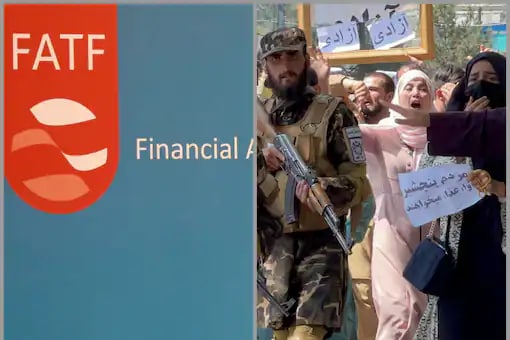‘Terrorism a Foreign Policy Tool’: Afghanistan’s Woes Must Act as Lesson for FATF on Pakistan
Pakistan’s claims to arrest terrorists and incarcerating them is also false as the Pakistani deep state continues to finance and plot bids to destabilize the immediate neighbourhood

Pakistan is likely to exit the financial watchdog Financial Action Task Force (FATF) ‘Grey List’, Pakistani ministers and officials have said expressing hope that it will open up doors for foreign investment which is also caught in a financial turmoil.
Pakistan claims to have complied on all 11 conditions set out by the FATF but India and its other neighbours like Afghanistan have consistently called out Pakistan for misleading the financial watchdog.
India on international forums like the Conference on Interaction and Confidence Building Measures in Asia (CICA) held in Astana, Kazakhstan, this week, as well as in the UN, has criticised Pakistan for funding cross-border terrorism.
The report mentioned above also pointed out that the Pakistan spy service, the Inter-Services Intelligence (ISI) is trying to push in as many as terrorists as possible in Kashmir before winters to prove to the world that the Valley is “unstable”.
All these warnings cast a doubt on whether Pakistan should be eligible for donations from foreign countries, the West and private entities since it is unclear if those funds will be used to fund the terror-funding machines on Islamabad’s payroll.
A country is placed in the intergovernmental group FATF’s ‘Grey List’ when it takes steps to control existing money-laundering and terror-financing operations, thus making subject to increased monitoring
As recent as this month, the Pakistan law enforcement agencies, according to a report by Hindustan Times, did not let the US Federal Bureau of Investigation (FBI) interrogate Sajid Mir, a Lashkar-e-Taiba (LeT) terrorist who was the mastermind of the 26/11 Mumbai Attacks.
Warnings of how Pakistan’s exit from the ‘Grey List’ could be unstable for the region was also highlighted by Hamid Pakteen, an Afghan contributor at the Afghan Diaspora Network (ADN).
Pakteen pointed out days after the FATF team silently concluded a five-day visit to Pakistan between August 29 to September 2 that Pakistan continues to support elements which can destabilise a region.
He spoke to founder and leader of National Resistance Front (NRF) of Afghanistan, Ahmad Massoud, who outlined how Pakistan has harboured various terrorist outfits and leaders, including the Taliban for 20 years rendering the US’ efforts of so-called ‘nation-building’ futile.
“If FATF’s verification of Pakistan’s measures against money laundering and terror financing bring a positive report, it may come out of the Grey List. But there is a deeply entrenched belief in Pakistan establishment which considers terrorism as an important foreign policy instrument as seen in the case of neighbouring countries including Afghanistan,” Pakteen wrote.
Pakteen urged the FATF, while writing for the ADN: ‘FATF should not be in any haste and should do a careful study before approving Pakistan’s exit from the Grey List.’
Pakteen referred to NRF’s Massoud’s claim that if Taliban did not take over Afghanistan then the killing of al-Qaeda leader Ayman Al Zawahiri would’ve been witnessed in Pakistan instead of Kabul.
Pakistan once was in the Black List of the FATF and remained there for three years between 2009 and 2012. It remained in the Grey List between 2012-2015 and then was placed in the Regular follow-up (RFU) list between 2015 and 2018.
It slipped back into the Grey List in 2018 and continues to remain there but expects that after the FATF holds its meeting in Paris between October 18 to 21 it will be let off the Grey List. In signs of early celebration, Hina Rabbani Khar, minister of state for foreign affairs, will be in Paris awaiting the announcement.
Pakistan will likely be placed once more on the RFU list even if it is removed from the ‘Grey List’, a report by India Today said.
Pakistan’s claims to arrest terrorists and incarcerating them is also false as the Pakistani deep state continues to finance and plot bids to destabilize the immediate neighbourhood.
“There are deep overt and covert links between Pakistan’s intelligence agency, state machinery and terrorist outfits,” the NRF leader said while adding that it would require a ‘drastic’ change in attitude.